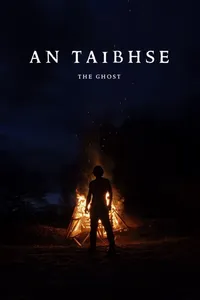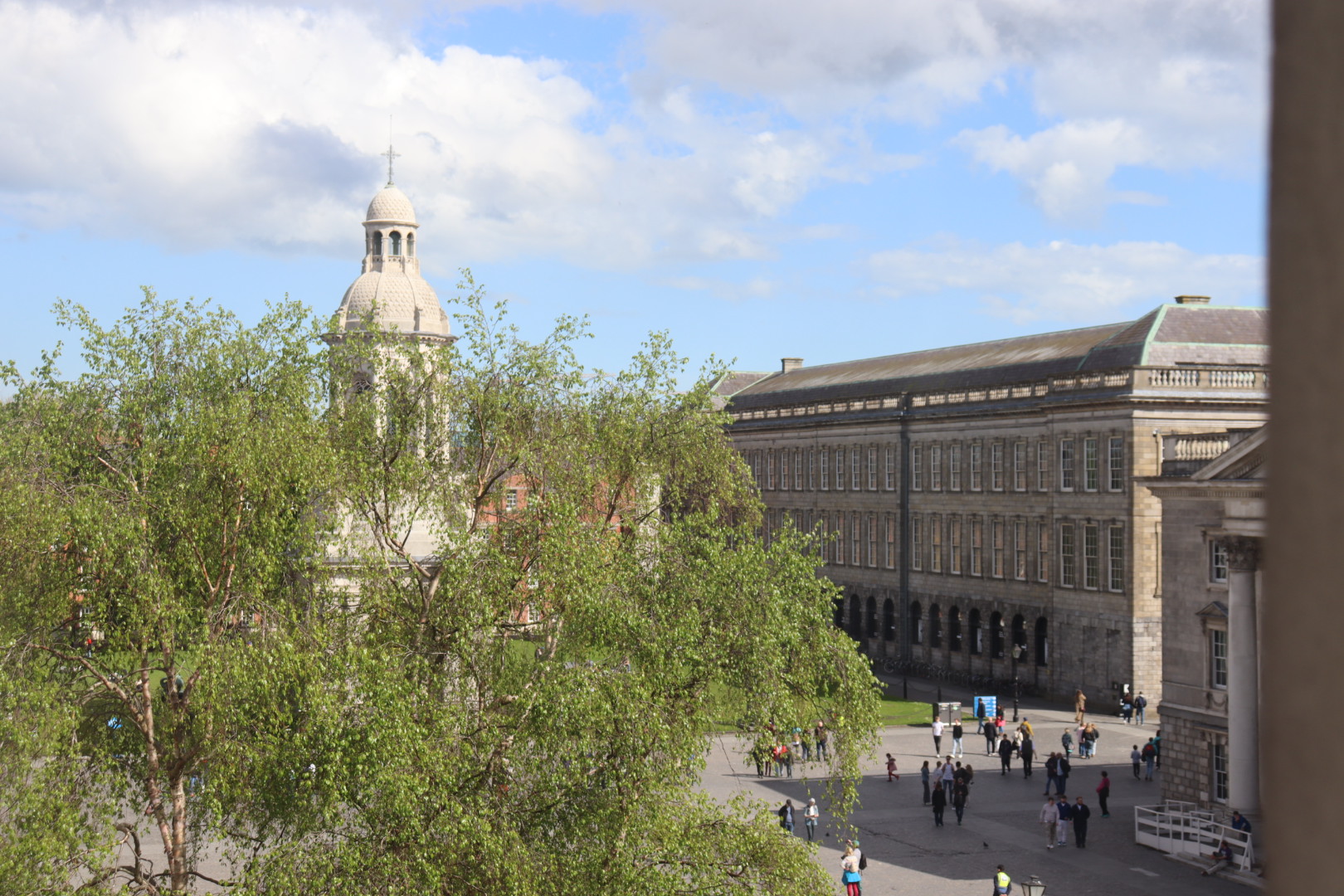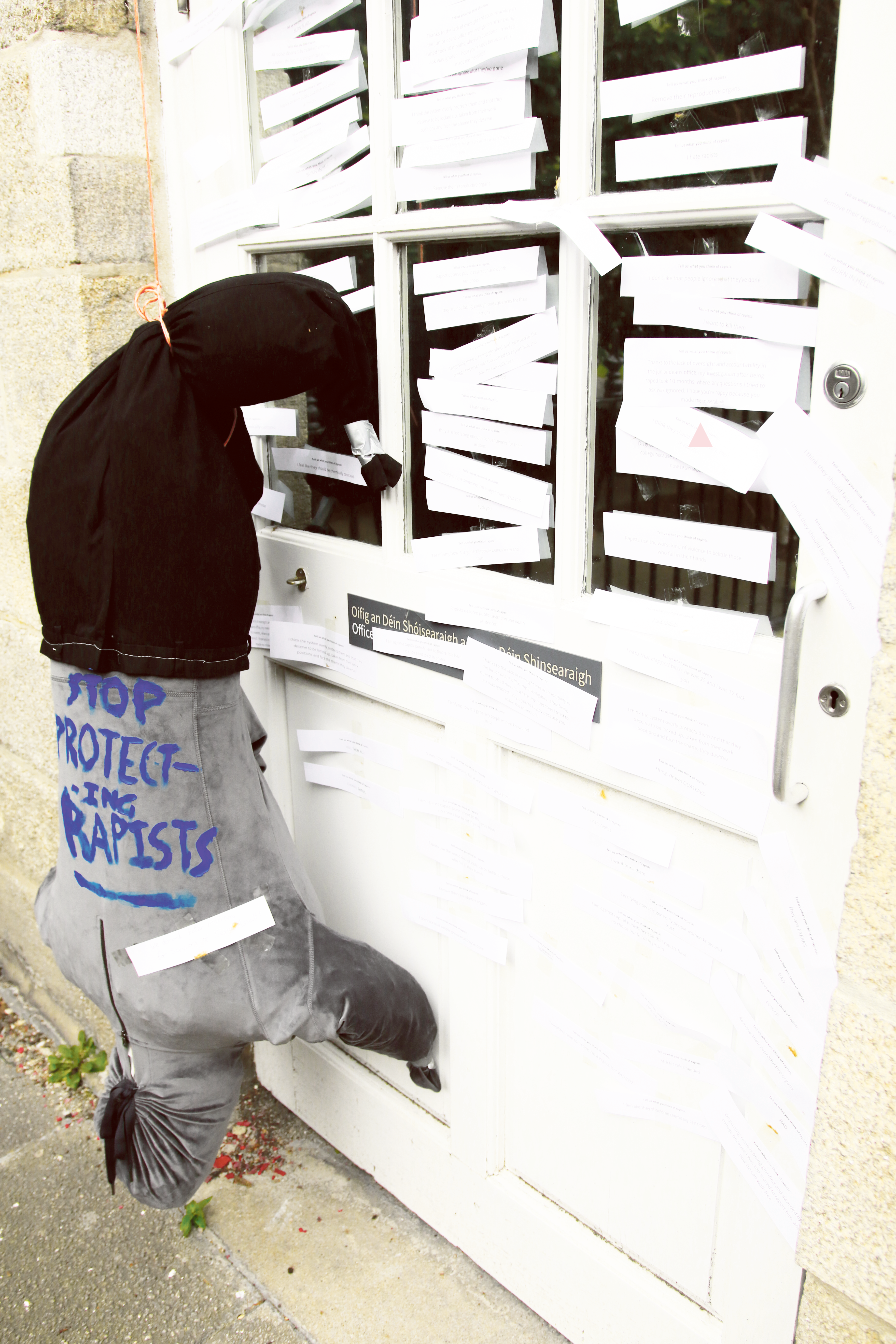Viviane Stroede
Staff writer
Rights for the LGBT community have slowly but surely been getting greater and great in Ireland. Gay couples are more accepted and public support is growing. Ask yourself what sexuality would you consider someone to be after just meeting them? Would you consider them to be bisexual, gay, lesbian or heterosexual? Unfortunately, most people naturally assume everyone to be heterosexual unless someone tells them otherwise. In 1993 homosexuality was decriminalised and the law for civil partnership of same-sex couples was changed in January 2011, but is that enough?
Dil Wickremasinghe, who is working as an Irish broadcaster, journalist and social entrepreneur, shared her experiences on how it is to be homosexual in Ireland:
“I encounter discrimination every day. I am in a committed relationship and we feel we are being discriminated against because we don’t have the same rights as a co-habiting heterosexual couple. We can’t marry and have children as the laws in Ireland do not include these for same-sex couples.”
Reports on civil partnership by Anne Colley, the chairperson of the Working Group for Domestic Partnership show that the lack of legal recognition impacts on the status and standing of lesbian and gay couples, as it is contributing to a conception that same- sex couples and their families lack value and are unequal to others. The report also states that it has the direct consequence of same-sex couples not having the same protection and legal obligation that are available to heterosexual couples through marriage.
When talking to L. Dunne, who has encountered difficulties growing up being homosexual, he stated that ” there is undoubtedly more that needs to be done, but considering how staunchly homophobic this country once was, I think we’re taking leaps and bounds and should be celebrating what we have achieved so far without the greed of the ‘more more more!’ mentality”.
Further on when talking about the religious community in Ireland he stated “how dare they attempt to make people feel ashamed of who they are. How dare they practically brainwash people into thinking anything different from what they consider ‘normal’ is wrong. The church should be encouraging people to embrace other cultures, to welcome all walks of life, but instead the vast majority just push an agenda of hate and segregation which is disgusting. However, in saying that, there are countless people I know who are both Catholic and openly gay, and many straight Catholics who fight endlessly for equality”.
Although according to Dil most people have completely accepted homosexuality as just being another part of the diversity of our society, “some still struggle with same-sex couples having children”.
Talking to other people in the gay and lesbian community, they shared stories about them being attacked on the street when walking around with their partners, being called diseased and being afraid of showing their sexuality openly on the street. According to Dil it is visible “especially in rural Ireland. Gay men are more visible and have a more positive image for example being funny and camp, however lesbians and transgender people are still viewed negatively”. This negative viewpoint is also shown to some extent in the media. Dil, a journalist herself, added:
“The media has been helpful on this matter. However, again its split as it has promoted gay men in the past in a positive light but lesbians, bisexuals and transgender people are almost an afterthought. How many openly lesbians, bisexuals and transgender presenters and contributors regularly feature on mainstream TV and radio?”
Trina Mulligan, a volunteer for Marriage Equality, stated that although homosexuals in media and television become more and more a part of the daily life, especially in soaps and dramas, she feels “that they do not portray homosexuals accurately at all”.
Ireland is clearly on the way to accept a diversity of sexuality, though still a lot has to be done. Dil mentioned in the interview that she is currently working on a Yellow Flag programme, working together with the Irish Traveller Movement and providing schools with assistance to teach children from a young age about cultures, nationalities and races. She added, “however we need a Rainbow Flag programme to be rolled out nationwide so children from an early age can be aware of the full spectrum of sexuality. Schools must engage in a daily conversation about inclusion and equality both in the classroom and the staffroom”.
Studies by the gay and lesbian equality network show that especially younger people can develop mental health issues, as a result of minority stress linked to fears about getting the acceptance and support by family and friends, difficulties in school or starting dating and getting support from organisations and communities.
A lot of things need to be changed; people need to encounter the topic of homosexuality more openly. Although the state steps towards a more tolerant policy it is still not enough. Why should a same-sex couple not be allowed to actually marry their partner, or why should they not be allowed to have children? From the interview with Dil and others it becomes clear that it is not only the state and its laws but also how people in Ireland see the topic as something not usual. It is not only about acceptance or tolerance but that homosexuality should become part of the norm.







